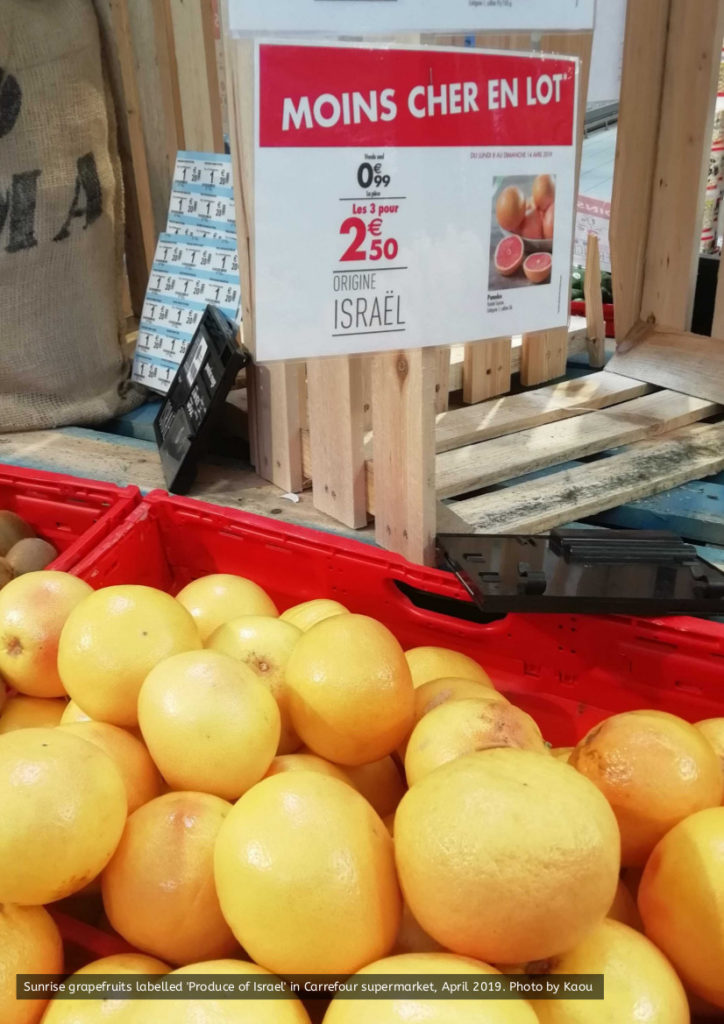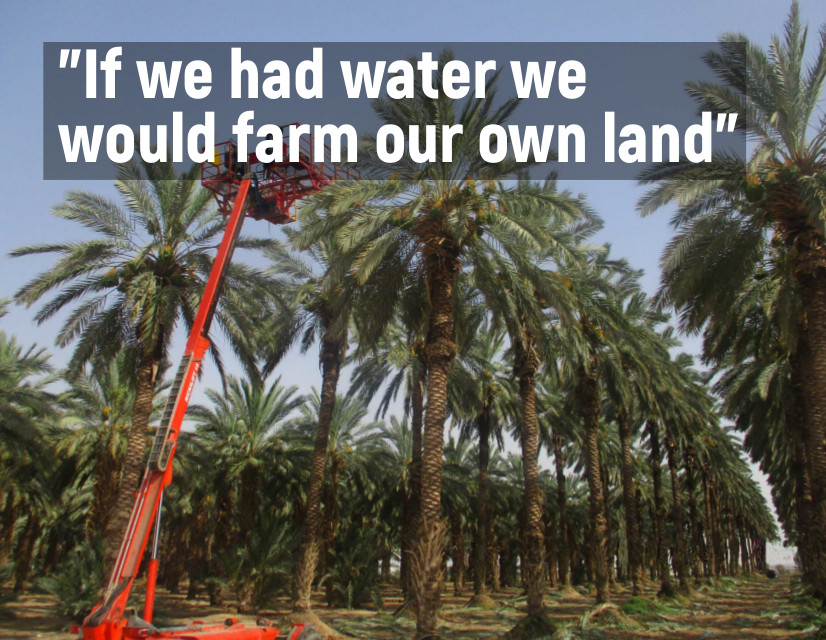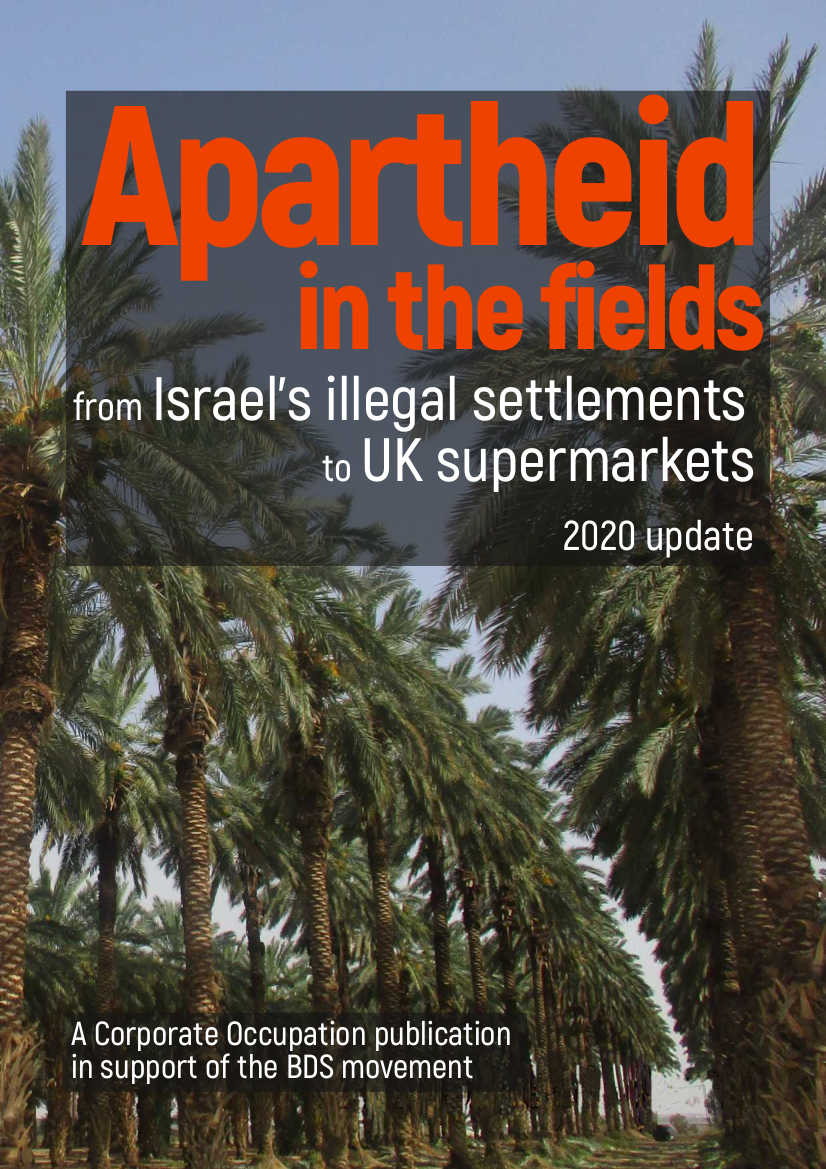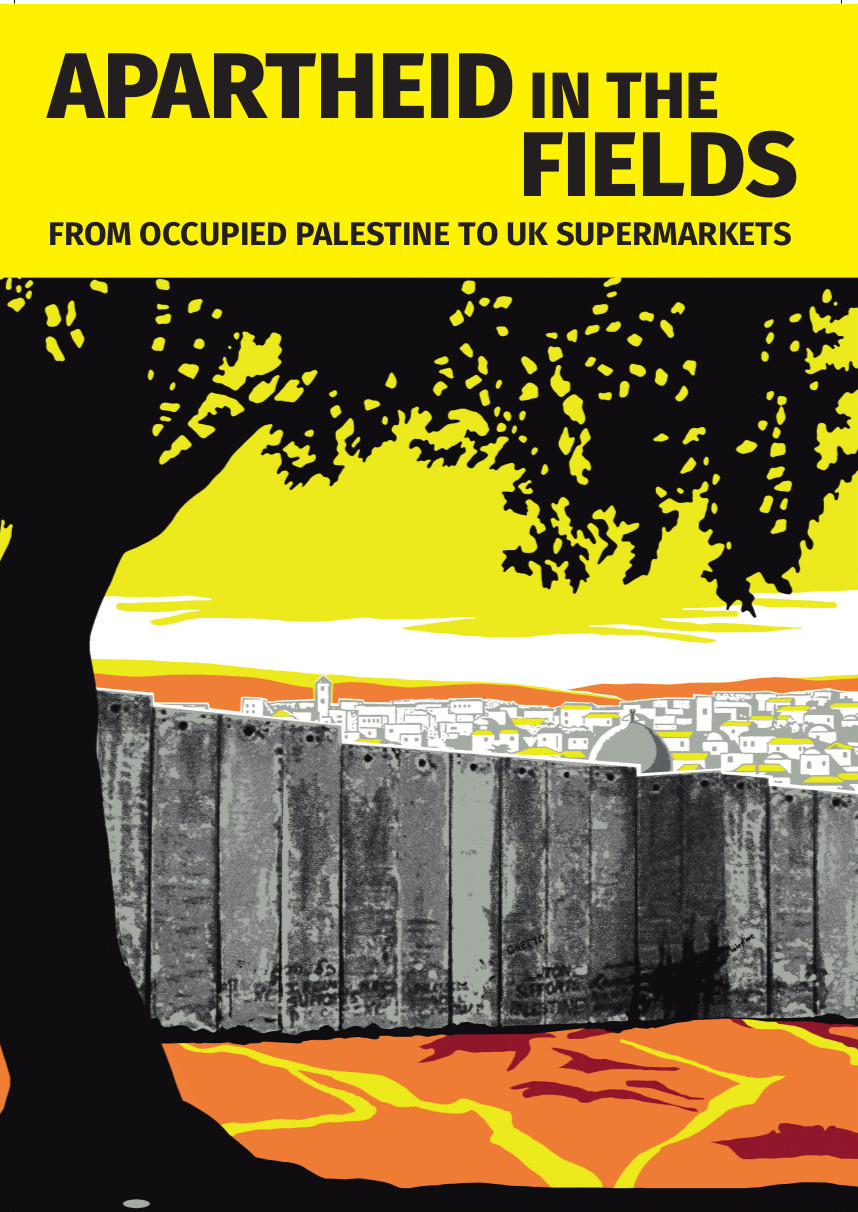
Interview one
Making a Killing in Tomer Settlement
Yousef,* Samih,* and Hasan* are exhausted. Their eyes are heavy and Samih is slumped in his chair. It’s after 10pm and the 14, 15, and 16 year olds need to get up for work in less than six hours.
Making a killing in Tomer settlement “We have no choice,” explains Yousef. “If we don’t go to work they will kick us out. It’s peak season.”The three Palestinian teenagers work together in the fields of a capsicum and chilli pepper farm, in the illegal Israeli settlement of Tomer, West Bank. The West Bank, which is part of Palestine, has been militarily occupied since Israel invaded in 1967.
Every day the boys start work at 5.30am, harvesting peppers to be packed and sold across Israel, the West Bank, and elsewhere in the world. Most of their fellow workers are teenagers like them, some child labourers as young as 13 years old. Despite the hard, physical work – and their young age – they say they are not allowed any breaks during the day – not even to go to the toilet or get a drink. “We go to the toilet before we go to work. If they catch us going in the farm they will punish us,” says Yousef. They are also exposed to the pesticides used in the fields. “They have a machine to spray the pesticides,” Hasan tells us. “The guys who spray it wear a mask, but they do it while the workers are harvesting the peppers, and we don’t have a mask or gloves.”
“We breathe in the chemicals. It’s toxic. They use plastic over the farm, so it’s enclosed. We feel it in our eyes,” says Yousef.
They are not provided with drinking water, so they have to drink the water from the same hoseline that is used on the capsicum plants. They are worried that this may also be polluted with chemicals.
“I almost cut my finger off while working because of the cutters they give us. The settlers don’t give us days off when we’re sick or injured and my finger was hurting for 10 days. They didn’t give me any medical help,” says Hasan.
Khaled* joins the interview. He is the oldest worker we speak to, at 18 years old. He works in a capsicum and chilli pepper packing house in Tomer. He has been there for two years – although he adds that to him it feels more like a hundred.
In the factory, Khaled stands in a long row with other workers and uses a machine to wash, clean, divide, and box up the capsicums. He doesn’t know exactly where the peppers are being sent, but knows that some are going to Israel, some to elsewhere in the West Bank, and some to Europe.
“I don’t feel safe in my job. We are really worried when we’re working. We can’t really take a rest. If I want to have a cigarette outside, they come and shout that we have to work. Even if a person has worked there for a hundred years, if the head person comes and isn’t happy with one small thing they would fire him or her. One of the girls had been working in the factory for six years. This morning she had problems getting the peppers out of the machine. The settlers said that she shouldn’t come back to work again because she wasn’t working hard enough.”
The boys are just some of the 1,800 Palestinian workers labouring on Israeli settlements in the Jordan Valley. The land on which these settlements were established was taken from Palestinians; the majority of it was private land owned by individual farmers.
Yousef, Samih, and Hasan all live nearby, in the village of Fasayil. Fasayil has had hundreds ofacres of land stolen by the occupation. Over 7% of the village area has been taken by the Israeli government to build four settlements: Tomer, Gilgal, Petza’el, and Netiv HaGdud.
People live under constant surveillance, under the gaze of an increasing number of cameras stationed along roadsides. Palestinians in the Jordan Valley also face regular harassment from settlers and soldiers, whether it be violence, theft, abuse, or the destruction of crops.
“My family [has] goats and sheep,” says Hasan. “If we are as little as 100 metres from the settlement fence, the soldiers come and shoot to scare our sheep. Sometimes the soldiers kidnap us shepherds and the sheep escape everywhere.” He says that shepherds have been detained by soldiers and not released to retrieve their sheep for several hours.
Israeli settlement expansion in the Jordan Valley is driven by Zionist colonialism, but another motivation is that there is big money to be made by Israeli companies in exploiting cheap Palestinian labour. The unemployment rate in Gaza and the West Bank is the highest in the world – according to the International Labour Organization (ILO), it was 27.4% in 2017. With agricultural livelihoods under attack and freedom of movement massively restricted by the occupation, many Palestinians across the West Bank are forced to work in the settlements on land stolen from their families.
Over 130,000 Palestinians worked in Israel and the settlements in 2017. Khaled, Yousef, Samih, and Hasan all work long, hard hours, seven days a week. They get paid NIS 100.00 a day (£22), which includes the NIS 10.00 fare for the bus to work. The daily Israeli minimum wage for a six-day week, which Palestinians working in Israeli settlements are entitled to, was NIS 212.00 (£46) at the time of interviewing the workers. In January 2020 the minimum wage increased to NIS 244.62.
For Yousef, Samih, and Hasan, there is no sick pay. Khaled is the only worker interviewed who thinks that his employers give sick pay when there are accidents. He explains that one worker had his hand broken by a machine in the field, and was paid while he recovered at home.
A working day should end at around 1pm, but normally they have to work at least two extra hours – sometimes more. “If we refuse to do overtime they’ll fire us,” says Samih. “If we’re tired we’re not allowed to have a break. If we do they will also fire us.” Often the settlers refuse to pay for any overtime at all. According to Khaled, “Last month I worked seven hours overtime, but they didn’t give me any more money.”
Khaled makes around NIS 2,700.00 (£592) a month. Israel’s minimum monthly wage at the time of the interview was NIS 5,300.00 (£1,162).[1] “They don’t pay extra for the weekend and they only give us just NIS 10 per hour for overtime. Overtime should be paid double but it’s the same money as during the day.”
This is a lucrative business for the settlement companies exporting fruit and vegetables to be sold around the world. These products are often labelled as ‘Made in Israel’ to disguise that they came from settlements on Palestinian land – despite the fact that in 2015, the European Union mandated that Israeli producers must explicitly label farm goods and other products as coming from settlements built on occupied land.
In 2005, 170 Palestinian civil society organisations came together to call for boycotts,divestment, and sanctions (BDS) against Israel. The boycott covers Israeli goods (including those produced in settlements), companies, and institutions. Pro-Israeli state and Zionist propaganda paints these activists as extremists and anti-Semites, simply for putting pressure on the Israeli state to end Palestinian oppression.
The Knesset, the national legislature of Israel, has made it a civil offence to publicly call for a boycott against the state of Israel. In early 2018 the government published a list of 20 NGOs whose officials would be banned from entering the country – including representatives from BDS national committees in France, South Africa, Italy, and Chile.
Yousef, Samih, and Hasan are not afraid of losing their jobs if the BDS movement is successful. “If there’s no work in the settlement we can survive,” says Hasan. “The boycott is good; it’s solidarity.”
Khaled also supports BDS: “I wish that everyone around the world would boycott Israeli goods; it is resistance. If the settlement companies closed down because of the boycott I would be happy. I would find work in Nablus and there would be no more settlers in the Jordan Valley.”
Goods from Tomer, where the boys work, are exported all over the world. In the past, BDS activists have uncovered that dates packaged in the settlement had ended up on the shelves of major European supermarkets such as Morrisons and Tesco. Several products from the occupied Jordan Valley, such as Medjoul dates and herbs, are air-freighted for sale in the US and Canada.
Corporate Occupation researchers visited Tomer in summer 2018 and found that boxes of capsicum were being placed in packaging bearing the logo of Israeli company Arava, the leading exporter of peppers from Israel and its settlements.
In 2012, the Co-op supermarket, one of the UK’s largest supermarket chains, took a principled stand and stated that it would no longer work with any supplier known to be sourcing from the illegal settlements. This had an impact on four of its suppliers: Agrexco, Arava Export Growers, AdaFresh, and Mehadrin.
The Palestinian BDS national committee applauded the supermarket’s stance, stating:
“Agricultural export companies, especially Israeli agricultural export companies, are at the heart of Israel’s system of domination over the Palestinian people. They are an integral component of the ongoing process of colonisation and environmental destruction of Palestinian land, the destruction of Palestinian agriculture, the theft of water, and the abuse of Palestinian workers’ rights.
“It’s high time that other international supermarkets and grocery stores follow suit, stand in solidarity with oppressed Palestinians, and join the boycott of Israeli goods.”
*Names have been changed to protect the security and privacy of workers.
This article was written by Amy Hall and first appeared in Briarpatch magazine.
Interview Two

We meet Omar* and Mahmoud* on the porch of their simple concrete house in the village of Al-Jiftlik in the middle of the Jordan Valley. We have come to interview them about what it’s like to work in the date palm colonies in the area.
Omar and Mahmoud are both young men in their 20s. As we talk, family members returning from work pull up chairs, drink tea and listen.
Omar tells us that the family owns land inside the village which they farm in the winter, but in the summer they need to work for the nearby Israeli colonies. He harvest dates in the fields of Argaman, Massua, Gilgal, Hamra and Tomer settlements. Sometimes he also operates machinery. Mahmoud tells us that he works in all of the settlements from Beit Shean in the north to the Dead Sea in the south. He has a skilled job working on the date palms.
Getting paid below the minimum wage
Omar gets paid 80 or 90 shekels per day. He says: “Mostly the wages are similar in each settlement, maybe 5-10 shekels difference.”
He starts his day at 8am, picking high in the date palms, while female workers are employed to sort the good dates from the bad.
Omar tells us: “We are sometimes working as high as fifteen metres. We work on a [cherrypicker] machine that drives very fast between the trees. When the machine is driving it’s very dangerous: a guy can fall down.”
Omar’s pay is around NIS 11 or 12 per hour, and is well under half the Israeli minimum wage.
Under Israeli law, Palestinian workers on settlements are entitled to the same minimum wage as workers in Israel.[1]
Mahmoud has a skilled position and has comparatively high pay, but he is still paid only about NIS 21 an hour, below the official Israeli minimum wage of NIS 29 an hour.[2]
Unsafe work
Mahmoud and Omar tell us that: “In 2011 a worker in [the settlement of] Gilgal fell. He spent five years in a coma in hospital before he died.” Mahmoud tells us that he doesn’t feel safe in his job, but that he needs the money because the family cannot access enough water to farm their own and in the summer.
Communities denied water
According to Mahmoud: “We don’t have enough water to grow things in the summer time and we don’t have enough support either. So I need to work in the settlement. We don’t have enough water because in most of this area we can’t dig water wells and [Israeli water company] Mekorot refuses to connect us to the water supply.
In the winter we don’t need a lot of water to grow things. We collect the rain water. But in the summer if we want to grow things we need to buy a lot of water. It’s very expensive. If we want to dig water wells we have to buy permission [from the occupation authorities] which costs around 700,000 shekels. It’s not really an official permission, it’s a bribe to the head of the Israeli Civil Administration, Mekorot and the army. This money would be under the table. But families here can’t afford this.
If we dig water wells without permission they come and destroy them. So we use rainwater, or sometimes take water [illegally] from Mekorot’s pipes.”
“If the settlement businesses closed down, we would get our land back”
Omar tells us that many people come from the refugee camps around Nablus to work in the Jordan Valley. He tells us: “They have no other option but to work in the settlements. They have less options than us here in Al-Jiftlik, because at least we have some land.”
Despite this, both men support the Palestinian call for Boycott, Divestment and Sanctions.
According to Omar: “If the settlement businesses closed down, we would get our land back.”
Child Labour
Omar tells us that he works alongside many children under the age of 16, and some children start work when they are 14. “I started work in the settlements when I was 15 years old,” he says.
Mahmoud tells us: “I also see people working who are under 16. Some of the settlers deliberately pick workers who are under the age of 16.”
Palestinian intermediary
Omar and Mahmoud are both employed through a Palestinian intermediary who works with the settlers. According to Omar: “We just organise our work by phone [with the Palestinian intermediary]. If they have work, we go. We don’t have a contract.”
Poor working conditions
Omar tells us that his employers don’t provide a toilet for the workers, while Mahmoud complains that he is not allowed a break. According to Mahmoud they would be blacklisted for unionising. He says: “If we tried to join a union the settlers would make sure that we couldn’t work anywhere”.
“The settlements get bigger every year”, Mahmoud tells us. “They are confiscating more land. A year and a half ago they took land belonging to a family from [the Palestinian village of] Aqraba.Now the settlers have planted young trees. The owners of the land don’t have the documents to prove they’re the owners of the land and that’s why it was very easy to confiscate it.”Omar concludes by saying: “If we had enough water I wouldn’t go to work in the settlements. I would farm my family’s fields and employ workers to work with me. Our main problem is water.”
*The interviewees’ names have been changed for their safety.
——————————————————————————————————————–
Interview three
“There are 400 or 500 settlers in four settlements, and they have more water than all of the 8,000 Palestinians who live in Bardala, Kurdala & Ein al-Beida.”
We interviewed a worker employed for Delevi Baum who wished to remain anonymous. Delevi Baum is owned by Ran Natan Delevi. The company rears animals in the settlement of Mehola to sell for meat.
Corporate Occupation: Can you tell us about the company, and what they export?
Worker: The company is owned by five settlers. They buy milk and the animals from Europe.They sell the animals for meat and sell some of the milk for a profit. There are around 2,000-4,000 animals, bought at different ages. Some cows are babies of two months and some are around eight months old. The company owns two ships and that’s how they bring the cows from Europe. Every three months they deliver 6,000 to 12,000 cows and sheep.
Delevi Baum sells the animals live — they don’t kill them at the settlement. They buy the animals very cheaply as babies and feed them for five or six months, then sell them for a lotof money. They also buy the milk for 60 or 70 shekels and sell it for 200 or 300 shekels.
The customers are both Israeli and Palestinian. Some Palestinians buy the products because they aren’t able to buy directly from Europe. Delevi Baum’s products are [mis-]sold as produce of Israel. They make their products look like they come from within the 1948 borders of Israel because they don’t want Palestinian people to boycott them. Sometimes they bring the meat to Gaza through the Jalameh checkpoint or to Hebron from Tarqumia checkpoint. They say it’s Israeli. They take it from here to Jalameh to make it look like it’s coming from Israel, not the settlement.”
How many people work for the company?
In total there are eight people working for Delevi Baum — four people full-time and another four when they deliver the cows. Some to give medicine to animals and some to bring animals from the open trucks.
And how much do you get paid?
The Palestinian workers are paid between 18 and 27 shekels per hour and Palestinians from within the 1948 borders [of Israel] get paid 38 shekels per hour. We work between 6 and 10 hours per day. The Israeli law says they have to pay 29 shekels an hour. I started on 16 shekels per hour and have gradually had pay rises, but I still don’t receive the 29 shekels.[1]
We don’t have any insurance, and if we have an accident we have to go to the court to get compensation.[23]
Every month when they give us our salary they ask us to sign a document to say that we don’t have any rights [such as to the minimum wage]. The document is written in Hebrew.
Do you know what the situation is for the Palestinians working in the herb packing houses in Mehola?
In the herb packing houses the workers are paid 18 shekels an hour. The workers who have been there along time get up to 26 shekels. There’s a boss, a [Palestinian] middle-man who takes a cut of the workers’ wages.
What do you think about Mehola settlement? Has it affected the area in a negative or positive way?
Negatively, because they steal our land and our water. There’s only one water well in Bardala and they take water from this well and use it for the needs of all of the settlements in the area.
They sell Israeli products in the West Bank, and destroy our economy by selling them very cheaply, undercutting local producers. We could produce these products ourselves if we had access to water. We could also export for ourselves.
But not all Israeli products are sold cheaply. For example, Delevi Baum buys milk very cheaply from Europe and sells it to our people at a very high price because we don’t have the opportunity to buy it from Europe directly.
There are around 70 or 80 settler families, 400 or 500 settlers, in the four settlements and they have more water than all of the 8,000 Palestinians who live in Bardala, Kurdala and Ein al-Beida. To every 1 million cubic metres of water the settlers use every month, we use 1,000. All the land the settlements are on belongs to the people of [the Palestinian town of] Tubas and the small communities around. If Palestinian people want to build anything they are not allowed to because it’s Area C, but the settlers can build what they like.
Who owned the land Mehola is on before the establishment of the settlements?
The land of Mehola belongs to the Al Foukha, Sawaftah, and Daragmeh families from the Tubas area. Tubas town is the second biggest town in the West Bank in terms of land ownership. The only good thing that the settlers have brought is work. But if we had our land and water we could organise work for ourselves. If there were no settlements then we would have our own land and water, our own projects and our safety.
We need to end the occupation so that we have our rights. The main problem is with the occupation.



0 Comments